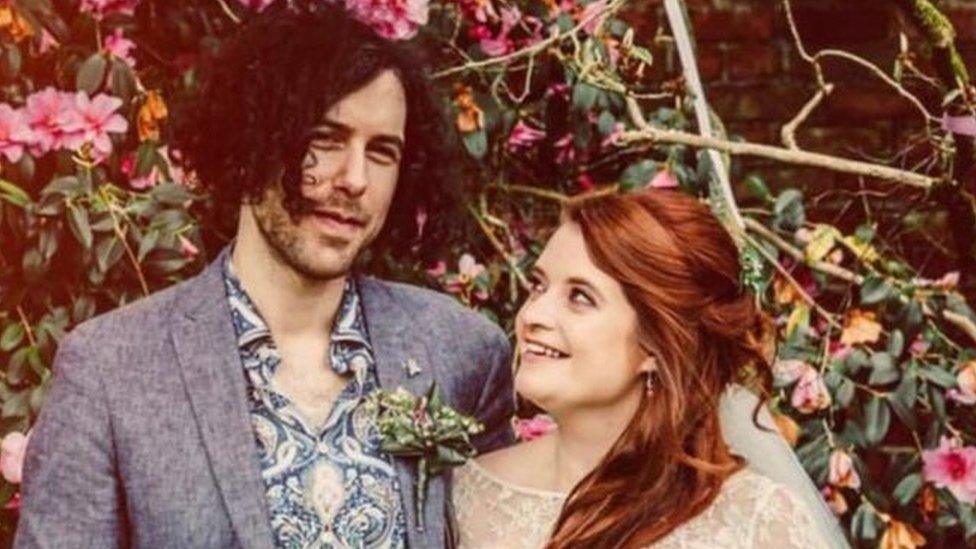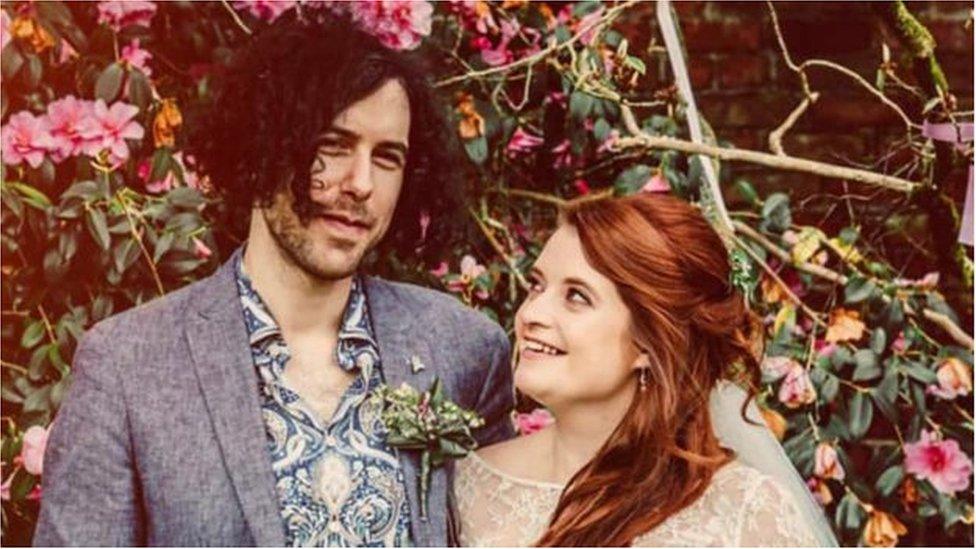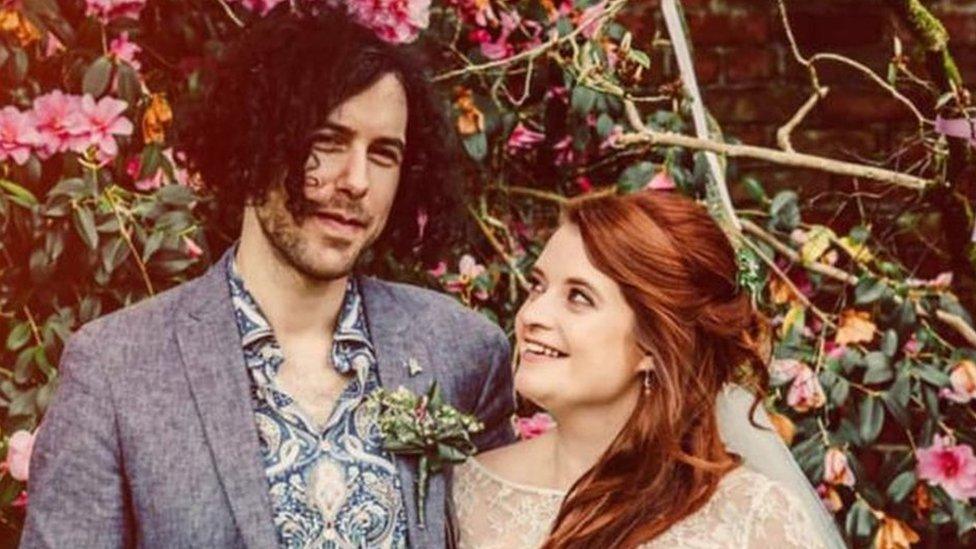Emma DeSouza withdraws Home Office court appeal
- Published

Emma DeSouza with her husband Jake
A Northern Ireland woman who secured a change from the Home Office over its immigration rules has withdrawn a fresh legal challenge.
Emma DeSouza took a case in 2015 when an application for a residence card for her US-born husband was rejected.
The Home Office had deemed her British, but Mrs DeSouza has never held a British passport.
The Good Friday Agreement allows people born in NI to identify as British, Irish or both.
Last week, the Home Office announced family members of British or dual British-Irish citizens from Northern Ireland would be able to apply for status, external through a post-Brexit residency process, known as the EU settlement scheme.
A UK government spokesperson said the changes "deliver on the promise we made to the people of Northern Ireland in the New Decade New Approach agreement earlier this year".
Government sources say the Home Office had not conceded in the long-running case involving Mrs DeSouza, which was upheld in the government's favour by an upper tribunal court last October.
UK nationality law is consistent with the Good Friday Agreement and its policy has not changed, government sources added.
In Mrs DeSouza's legal battle, the Home Office had requested that she either reapply as a British citizen or renounce her British citizenship and pay a fee to apply as an Irish citizen, for her husband's application to reside in Northern Ireland to be approved.
But she said she did not consider herself a British citizen and therefore had no need to renounce it, having always identified as Irish.
Mrs DeSouza had been challenging the government, using the Good Friday Agreement as the basis of her argument.

In 2019, an immigration tribunal ruled against Mrs DeSouza and her husband, but they were appealing against the decision
Following the law change from the government, Mrs DeSouza has now said she and her husband have "no other option" than to withdraw their appeal.
The hearing was scheduled for 25 June.
Mrs DeSouza said she would continue campaigning for citizenship rights, as the new changes to the immigration laws are "time-limited", taking effect from 24 August until the scheme closes to applications next June.
She said that should not "overshadow what is an unbridled win", and did not rule out the possibility of future legal challenges.
"We have put in five years, so our intention is to continue with the 'We are Irish Too' campaign at the moment," said Mrs DeSouza.
Her husband, Jake, said "everyone in Northern Ireland" would benefit from the recent changes, but they would work to continue addressing inconsistencies in the law.
Government sources said when they start accepting applications for the settlement scheme, family members resident by 31 December 2020 will have over 10 months to apply by the deadline of 30 June 2021.
They said like EU citizens, people of Northern Ireland resident in the UK by the end of the transition period will be able to be joined by existing family members, where a relationship existed by the end of that period, and future children by the end of the deadline.

Timeline of the case
Mrs DeSouza applied for a residence card for her US-born husband, Jake, in December 2015, making the application under her Irish passport.
However, the Home Office rejected the application as it deemed Mrs De Souza was British, even though she says that she never held a British passport.
They requested she either reapply as a British citizen or renounce her British citizenship and pay a fee to apply as an Irish citizen.
But she challenged the decision, citing the Good Friday Agreement's terms that assert her ability to identify as Irish, British or both.
In 2017, a judge said Mrs DeSouza was an "Irish national only who has only ever been such" and the following February, the first tier tribunal ruled in favour of Mrs DeSouza.
Later in 2018, the Home Office lodged an appeal and the case was heard by a panel of judges in the Upper Tribunal court in September 2019.
After the tribunal upheld the case in the government's favour, Mrs DeSouza said she would take the case to the Court of Appeal in Northern Ireland.

- Published14 May 2020

- Published20 May 2020
